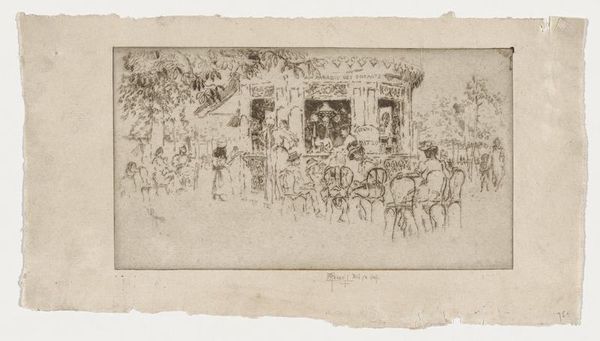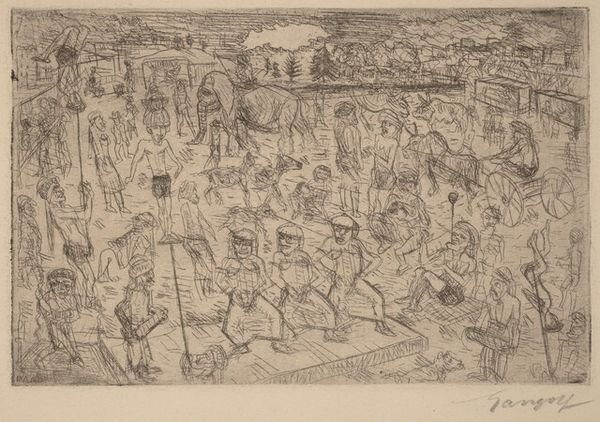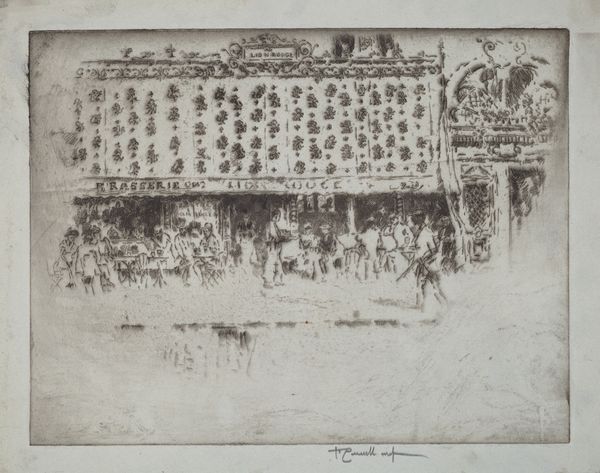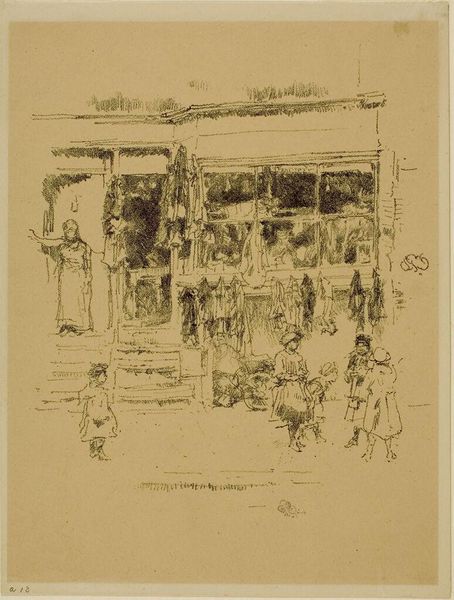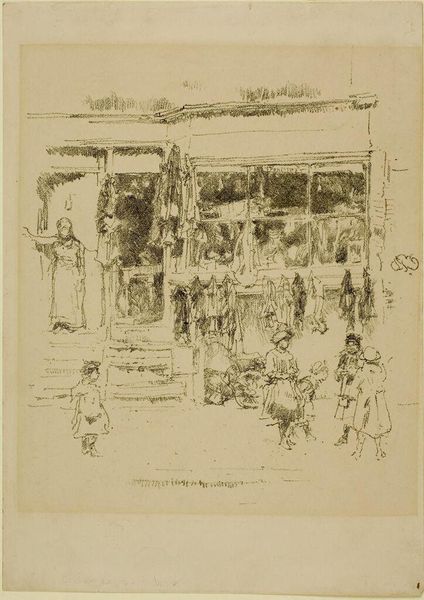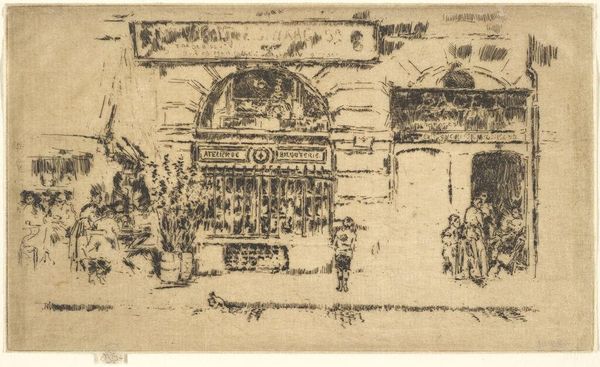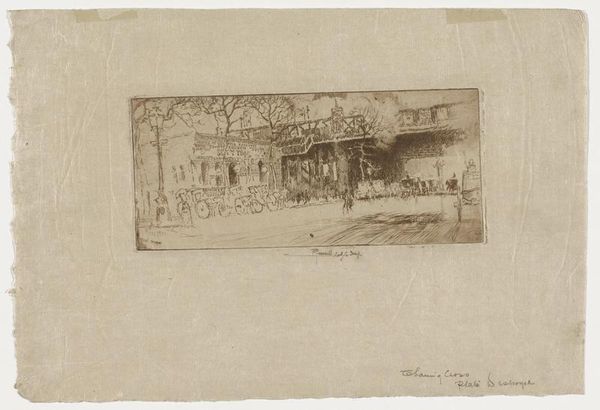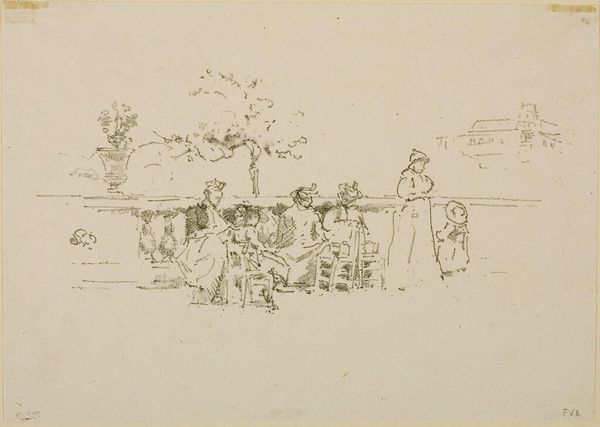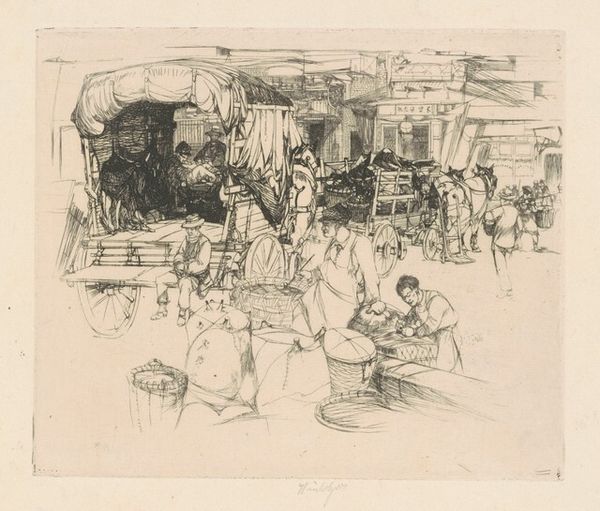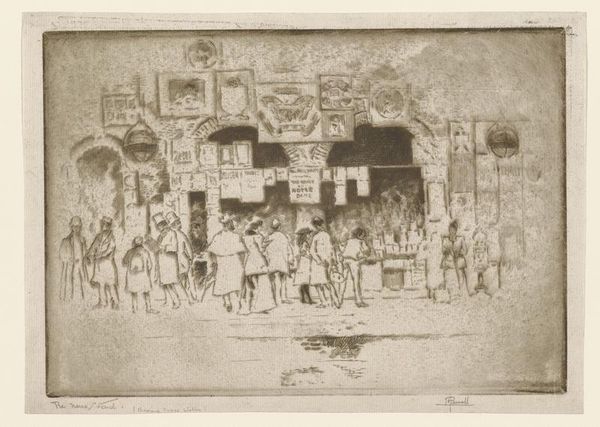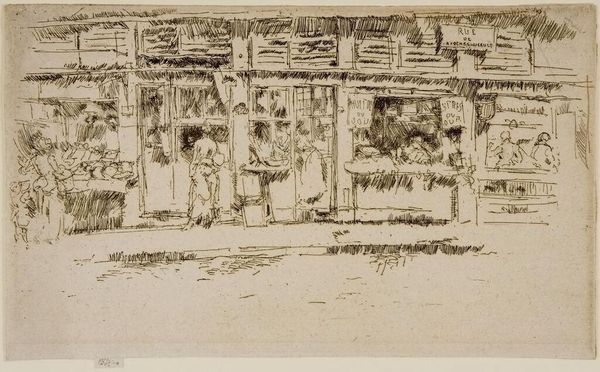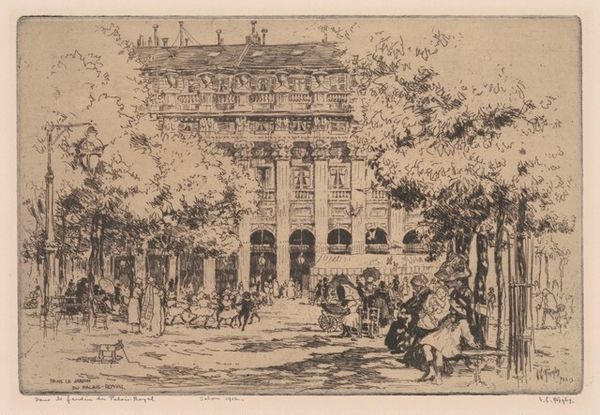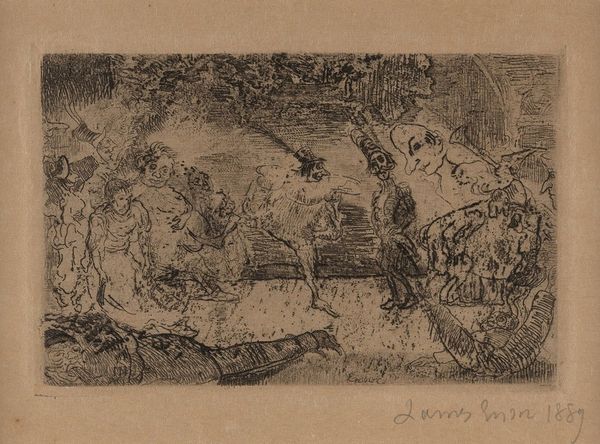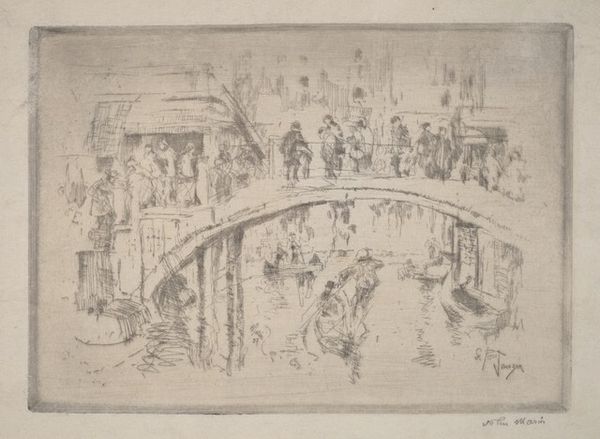
Dimensions: 4 3/8 x 6 1/4 in. (11.11 x 15.88 cm) (plate)5 5/8 x 6 3/4 in. (14.29 x 17.15 cm) (sheet)
Copyright: No Copyright - United States
Curator: This etching, "Café Tuileries," by Joseph Pennell, transports us to 1893 Paris, depicting a lively scene outside a cafe. The Minneapolis Institute of Art holds this intimate artwork. Editor: My immediate feeling is one of spontaneity and lightness. The delicate lines create a bustling, almost dreamlike atmosphere. Look at how light the etching makes the running children look. Curator: Absolutely. Pennell, an American expatriate, deeply engaged with capturing the spirit of modernity. The Tuileries Gardens, a public space, here becomes a stage for the everyday lives of Parisians. This echoes the broader interest in Impressionism in depicting contemporary social life and popular entertainments. Editor: Note how the etching medium itself—the acid biting into the metal, the pressure on the paper—lends itself to capturing that sense of fleeting movement. The deliberate scratches and the texture of the laid paper are intrinsic to the artwork's impact. Each line speaks to the artist's hand and the physical act of creation, highlighting the value in craft itself. Curator: Indeed. And Pennell’s focus on cafes points to their central role in Parisian society. They were places where social classes mingled, ideas circulated, and artistic communities thrived. This print captures the democratic potential of such public spaces in fostering creativity and dialogue. Editor: It also gives a peek into the economics of leisure in Paris at that time. The carefree movements of the children contrast with those seated, a suggestion of social strata interacting in one locale, visible because of its rendering in affordable print for popular consumption. It challenges, perhaps subtly, our assumptions about value; we get this glimpse into elite social life due to accessible methods of mass production. Curator: Fascinating. Ultimately, Pennell's print underscores the significance of urban spaces in shaping modern identity, while acknowledging that access and freedom are always negotiated through the framework of existing social dynamics. Editor: For me, understanding the etching process makes it clear how deliberately Pennell worked to construct the mood. It's not just a visual scene; it's an embodied one, bringing the city to our fingertips across time, emphasizing that access depends on the conditions of art's creation and its value as a result.
Comments
No comments
Be the first to comment and join the conversation on the ultimate creative platform.
